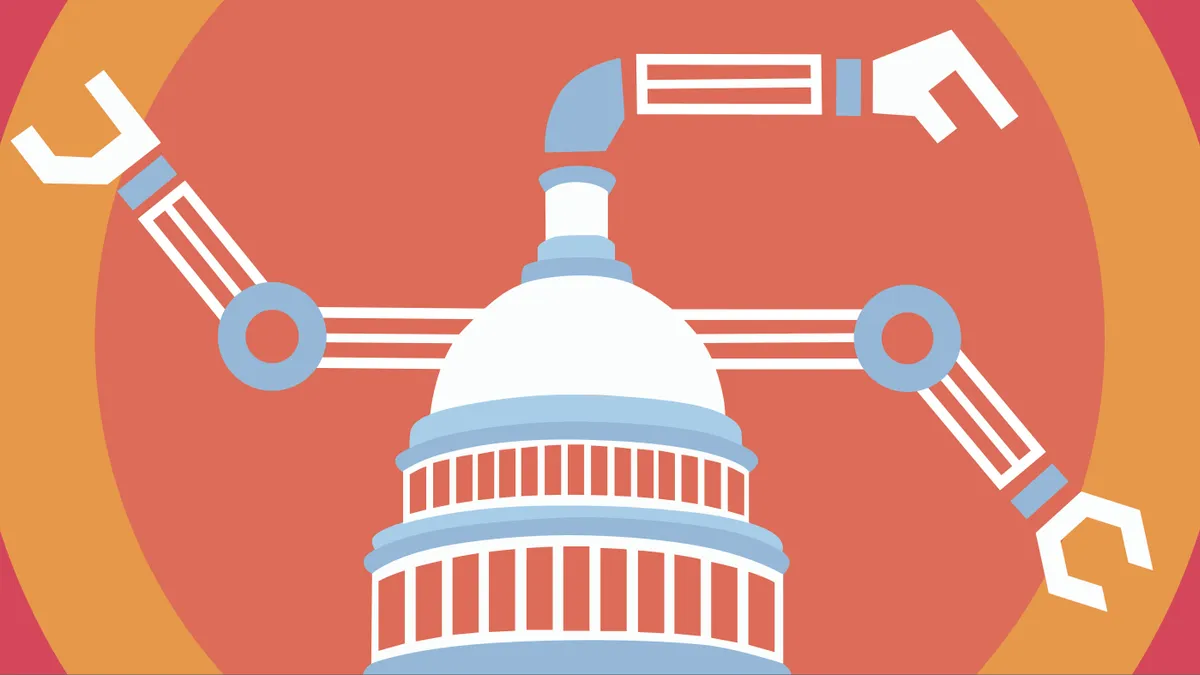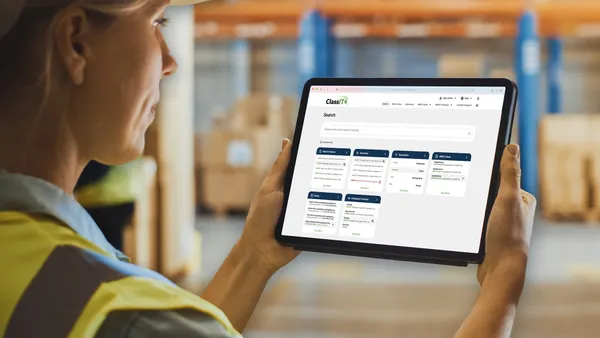Editor's Note: The following is a weekly column covering technology and regulation within the supply chain and logistics industries.
Industry: should we go straight to fully autonomous vehicles?
The Washington Auto Show was this week, preceded by a few panels on the hill and the Walter E. Washington Convention Center to discuss AVs.
Highlights: How to keep everyone safe in a world with AVs (including pedestrians and cyclists); whether or not manufacturers should go straight to developing fully autonomous vehicles as opposed to partially autonomous vehicles (in light of recent Tesla crashes involving cars in Autopilot mode); and how to protect driver and company privacy and data in light of potential hacks.
"Every system is going to be hacked, it's just a matter of time," said Andy Koblenz, executive vice president of the National Automobile Dealers Association. "We think the risk is there and we need to educate consumers more over whether their vehicle is safe."
Rachel Bhattacharya, director of corporate finance for General Motors, told panel attendees and senators on the hill that safety is as much a concern for the industry as it is for lawmakers.
"I think one of the essential precepts for us is a public/private partnership," she said. "We all want safety, not just for the person in the vehicle but the broader urban environment."
The Tuesday panel at the Russell Senate Building highlighted how AVs could positively affect the trucking industry. Panelists agreed AVs could reduce fatal crashes involving semis (because humans cause 94% of fatal vehicle crashes) but also spur job creation.
"If you own a fleet of trucks and you're hauling $100 million worth of goods across the country, do you really want that to go unsupervised?" said John Maddox from the American Center for Mobility. "I think we've got a long time of humans in the trucks. We need to think about this in a realistic fashion — we shouldn't be making policy assumptions on whether all these jobs will go away; in fact, this will create new jobs. There's a lot of potential for new careers."
Biggest disappointment: Tesla did not attend the show this year (and apparently never has), which is too bad because I really wanted a closer look at the Model X. After they all, they are the leading innovator in electric and autonomous vehicles, but they're popular enough to attract consumers straight to their stores without needing an auto show.
But between federal investigators flying out to California to check out the recent crashes and Model 3 production, they've got their hands full.
Trump slaps tariffs on imported solar panels
Despite insistence from some solar industry leaders that tariffs would be detrimental to American solar, President Trump issued a 30% tariff on imported solar modules and cells earlier this week to protect U.S.-based solar manufacturers SolarWorld and Suniva, Utility Dive reported.
Some say tariffs protecting the two manufacturers will lead to American job loss and cripple the American solar supply chain. Experts are even saying that utility-scale solar deployment will decline by 11% over the next four years. Utility Dive's Krysti Shallenberger offers a concise breakdown of the tariffs' potential impacts that you can read here.
What you need to know about that leaked infrastructure bill
Axios' Jonathan Swan released a rough draft of Trump's infrastructure plan, which you can view here. It's hard to read too much into it because it is just a 6-page outline and doesn't provide a lot of key details, such aswhere the funding for this infrastructure project will come from and whether there's a plan for the Highway Trust Fund.
According to The Hill, the White House has not yet acknowledged or confirmed this leaked draft, so any discussion about the plan is pretty speculative at this point. For all we know, most of the outline could be scrapped in the final bill.
One notable absence from the outline was the American Trucking Associations' proposed gas tax to fund the Highway Trust Fund. Another interesting tidbit was the plan to repair U.S. infrastructure via private/public partnerships, in which local government entities apply for matching federal funds.
Aerospace manufacturers are optimistic
The U.S. Census Bureau reported this morning that manufactured, durable goods orders increased 2.9% month-to-month in December while shipments rose 0.6%.
Biggest takeaway: orders of nondefense aircraft and parts increased 22.5% YoY. That's a big jump, suggesting airlines could already be addressing the capacity crunch head-on.
In other news, the Bureau of Economic Analysis announced this morning that real GDP grew 2.6% in Q4 2017.
In case you missed it
Canadian Pacific Railway released their Q4 2017 earnings, revealing net income jumped $600 million YoY. The railway cited the new U.S. tax code as reason for staggering growth. According to Progressive Railroading, transportation industry employment grew 1.6% YoY in December.
As hinted in their Q4 earnings call, more shakeups are coming to CSX: the company is apparently considering selling 8,000 miles of track outside Boston.
Despite some doomsday perspectives regarding automation, an NPR poll revealed that 94% of warehouse workers aren't worried about a robot taking their job.
Speaking of automation, the South China Morning Post reported Alibaba is testing self-driving cars. It's an intense race, not just for automakers, but for e-commerce giants seeking to control all aspects of their supply chains.













